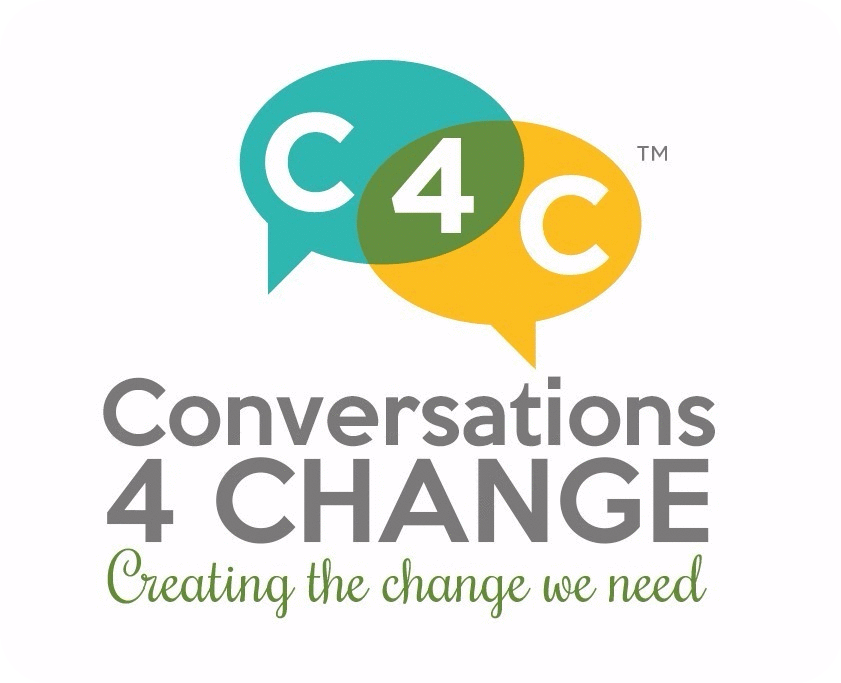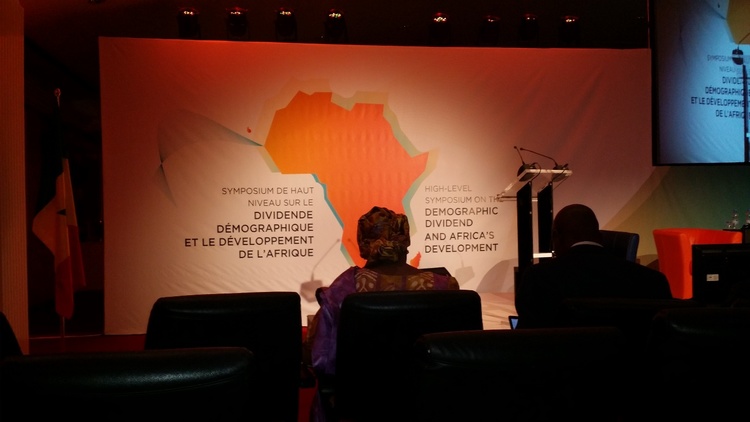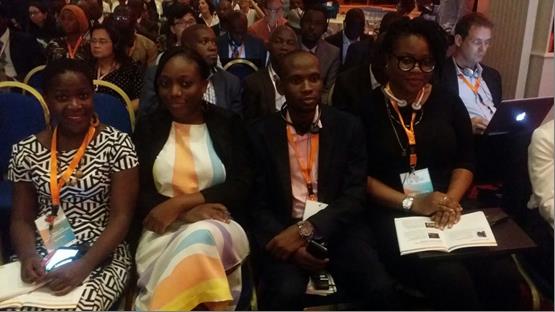UNFPA, in close collaboration with the Centre for Research in Applied Economics and Finance of the University of Thies (CREFAT), and with the support of the Government of the Republic of Senegal, organized this historic event that served as a section of the 11th Scientific Conference on "National Transfer Accounts," which was convened for the first time on the African continent. The Symposium was well-attended by distinguished stakeholders, including religious and traditional leaders,government officials, scholars, development organizations, private sector representatives and youth leaders, to materialize joint actions on the demographic dividend in Africa through investment in youth and by giving them a chance to contribute in developmental issues.
In his solidarity message, Dr. Babtunde Osotimehin, the Executive Director of UNFPA, ably represented by Mabingue Ngom, UNFPA Regional Director, West and Central Africa, recognized young people as "not only beneficiaries but also agents of change." He emphasized the need for the continent to speed up investments in education, employment opportunities and healthcare in order harness our demographic dividend.
MR. MABINGUE NGOM, REGIONAL DIRECTOR UNFPA WCARO, GIVING THE WELCOME ADDRESS.
His Excellency Jakaya Kikwete, Former President of the United Republic of Tanzania, underscored in his keynote address the importance of investing in young people to help drive sustainable growth and development in Africa. Citing family planning, fiscal responsibility and sound education, especially of the girl child, as the answer, H. E. Kikwete called for significantly increased investment of resources and attention in these areas for Africa to stand a real chance or reaping the benefits of demographic dividend.
H. E. JAKAYA KIKWETE, FORMER PRESIDENT OF TANZANIA, GIVING THE KEYNOTE ADDRESS.
A session on the Emerging theory by Prof. Gretchen Donehower from the University of Berkeley, California, demonstrated that women in Africa experience time poverty by dedicating hours to unpaid labor, which could otherwise be expended on remunerated labor. Calling for policies to remove barriers to economic participation by women, Dr. Donehower said that “A society willing to embrace the future must discuss redistributing excess housework to men and labor markets.” Similarly, Dr. Fatimata Dia Sow, Commissioner for gender and social affairs of ECOWAS, remarked on the effort of ECOWAS to support women and young people in the sub-region.
In the session on strengthening political commitment for DD, Hiroute Guebre Sellassie, Deputy Special Representative of the UN Secretary General for West Africa and Sahel, stated that based on the current global goal, the UN is now committed more than ever to ensure that young people participate fully in the decision making process as well as the implementations. She recognized that the African youth are a valuable partner, capable of offering relevant solutions.
Her speech was followed by a historic call to action to “Put Young People First” by youth representative, Mr. Pape Arona Traore, Executive Secretary of AfriYAN West and Central Africa.
PAPE ARONA TRAORE, AFRIYAN WCA SECRETARY-GENERAL, GIVING THE CALL TO ACTION.
In his rousing call, Mr. Traore spoke on the position of the African youth. Excerpts of his speech are as follows:
“We are calling on all the African member states to legislate and create condition that are conducive for youth entrepreneurship, including through specific and dedicated procurement measures for youth; tax reduction for young entrepreneurs, mechanisms of protection against extreme market and capacity building training on entrepreneurship and business development...We re-iterate that we be valued and that our needs and rights be put first, ensuring a growth and development space for an African youth well educated, healthy, hardworking and innovative…..Everything done for us without us is against us. The youth MUST be involved in DD strategies. To ensure maximum and meaningful participation of young people, we are urging governments, political leaders and international development partners to consider the benefits and profits that the continent is set to enjoy while investing in young men and women, and give impetus to education, health, entrepreneurship and human rights, as the basis of youth empowerment and Development…We continue to call for the establishment of permanent and effective intergenerational dialogue to reinforce our leadership skills, capacity and build generational parity to ensure our meaningful participation in decision making process.”
YOUTH REPRESENTATIVES AT THE SYMPOSIUM.
Other sessions convened include- Demographic Dividend Around the World: Lessons and Perspectives; Demographic Dividend in Africa: Policies and Interventions; Sustainable Development in Africa: Perspective of Elders/Element Persons. The former Head of State of Federal Republic of Nigeria, Dr. Yakubu Gowon advised African leaders to “concentrate on the youth by investing in their education from childhood to adulthood”, and charged young people to work hard in the opportunities they have at the moment in order to achieve great things.
His Royal Highness, Dr. Haliru Yahaya, Emir of Shonga, Nigeria, explained the indispensable role of religious and traditional rulers in harnessing DD by giving a clear example of the roles they played in the Northern Nigeria which brought about the acceptance and success of the Polio eradication campaign.
He called for mapping out traditional institutions and utilizing them in developing communities. He shed light on the stance of religion as regards family planning, a major recommendation for the realization of DD, and asserted that the idea that any religion is against family planning is a misconception and a misinterpretation. The Emir categorically stated that research indicates that child marriage in unislamic, and he emphasized the need to send girls back to school if they dropout due to pregnancy, saying that schools must encourage such girls to return and complete their education.
Professor Parfait Eloundou-Enyegue of Cornell University outlined the need to mobilize the intellectual energies of Africa, The Regional Manager of Cisco advised from the viewpoint of the private sector not to underestimate the importance of technology in youth inclusion and building the continent.
In her insightful contribution, Nobel Laureate (2011) Ms. Leymah Gbowee underscored the need for following the process of life, saying, “Young people have to go through the process of mentorship, and desist from aspiring for quick success.” She identified women’s issues, comprehensive sex education and sexual and reproductive healthcare as an overlooked and critical intervention to harness DD. She also highlighted national stability to be key, as instability means an increase in fertility due to lack of sexual responsibility. Finally, she maintained that the issues affecting DD are linked, not ranked, and all are equally important.
The former President of Mozambique, His Excellency Armando Emilio Guebuza, also shared insight, stating, “Without integrity and responsible leadership, Africa we want will not be achieved”. In her contribution, the former Prime Minister of Senegal and currently the special Envoy to the President of Senegal, Her Excellency Aminata Toure said, “We must not forget that the needs of the youth differ depending on their environment, we must not discuss them as homogeneous…we must improve education and reduce corruption to improve the lives of our people.”
At the end of all the contributions was a very brief Q and A session. Questions were asked by the youth and Nigerian representative, Amanda Chukwudozie, asked what the plan for the practical implementation of all that was discussed at the symposium was. The question was answered by Dr. Gowon, who expressed confidence that the results of the symposium will be officially presented to all countries’ governments with the advice of the organization for implementation.
UNFPA REPRESENTATIVE SELAMWIT MAMO AND C4C REPRESENTATIVE AMANDA CHUKWUDOZIE.
YOUTH REPRESENTATIVES AT THE SYMPOSIUM
The social media participation by the attendant youth was a huge success and mobilized thousands of young people across the continent to experience the symposium online and to weigh in on the crucial matters discussed. C4C was instrumental in disseminating information live from the event and engaging people all over the continent over the issues discussed.
Using the hashtags #HLSDD16, #PutYoungPeopleFirst and #InvestInOurFuture, people worldwide were able to track and contribute to the conversation for maximum participation. A day after the symposium, 3 million people had viewed the social media messages bearing the hashtags of the event.









